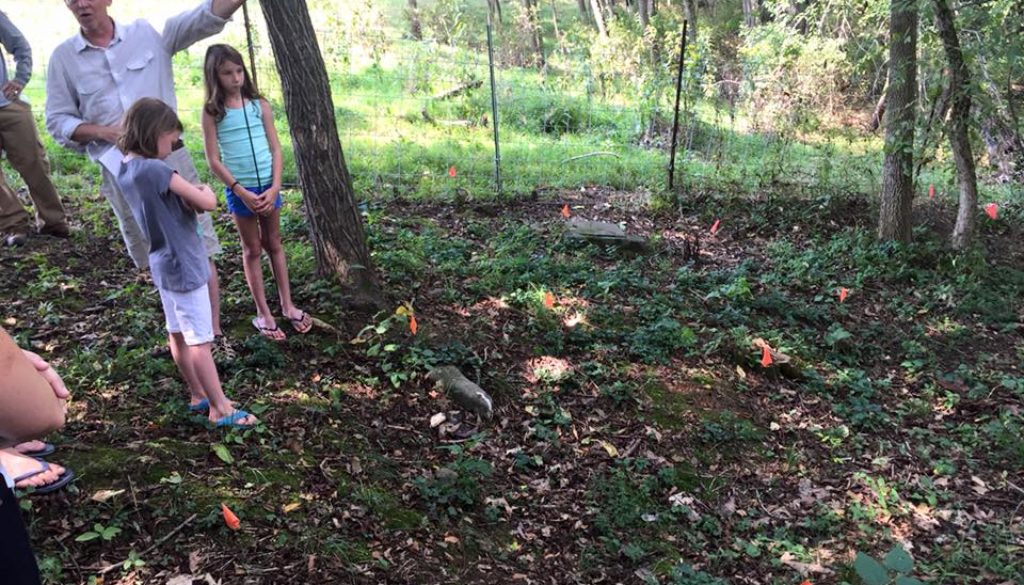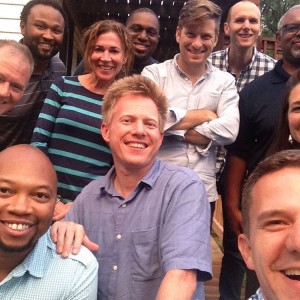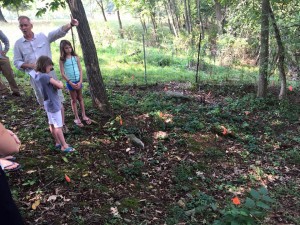Contending for Shalom
I am sitting in IAH– the Houston airport– waiting for a flight to Austin. I have been asked to serve on the steering committee for a conference in February 2016 called The Anglican Justice Gathering: contending for shalom. I am joined by my good friends Cliff and Christine Warner, Bill Haley, and Sami DiPasquale.
We are meeting to pray, talk, and build out this purpose statement for our time next February:
The purpose of this gathering is to identify those in the ACNA who would like to be part of this conversation, gather them together, consider together our unique contribution to the Kingdom of God in our North American context as Anglicans, dream together, pray together, and begin discerning together how the Lord might be leading our denomination to engage the systemic brokenness of our country.
It is a conversation that is always close to my heart and one that is increasingly a part of our life together at Restoration. As we take concrete steps to provide immigration legal aid; as we partner in the good work of Casa Chirilagua; as we pray and give and contend for the end of human trafficking; as we think about how to leverage our pastoral staff for building of God’s Kingdom in places like Phnom Penh and West Asia. We are beginning to grow as a church that contends for shalom. And we have so much more that we could do.
Last week, I had the immense privilege to participate in a different conversation that was also contending for shalom. 13 men and women from places like Minnesota, Florida, Atlanta, and Washington DC gathered to talk about America’s original sin: chattel slavery and the trafficking of Africans for economic gain. We were almost evenly divided between white and black. We considered how to name the awful legacy of racial oppression in the US for the past 375 years in various forms and to recognize the ongoing effects in the black community. We mourned the general lack of recognitioin, awareness, and ownership of this reality in the white Christian community. We considered concrete ways the white Christian community might be able to make a meaningful statement recognizing this reality and the ongoing injustice across racial lines. We talked about reparations.
In the middle of our day, we walked to a slave cemetery that is on the property of Corhaven. It had been neglected for 150 years and just recently Bill and Tara Haley had begun the work of cleaning and restoring it.
On this day, we went to remember the lives of those buried there and to repent of the evil conditions in which they lived. As we looked walked amongst the grave stones, depressions, and vegetation, there was a sweet, soft breeze. It was very comfortable.
One of our fellow conversationalists lead us into prayer by telling us the story of Israel being delivered out of slavery from Egypt. That story begins with God telling Moses to take off his shoes because he is standing on holy ground. Max, our prayer leader, invited us to take off our shoes before we started praying.
Inwardly I groaned. I was wearing boots. We were standing in the woods. I didn’t want my feet to get dirty.
And as I was thinking those things, Max added, “It’s time to get uncomfortable.” I agreed.
Standing in bare feet, in crisp leaves, broken sticks, and broken rocks, Max talked through the story of the Seder and the Passover and all the experiential elements that God provided for Israel to remember that they were delivered from slavery.
Then Bill told the story of spending a day clearing brush from the cemetery, piling it up, and burning it. And how– INCREDIBLY- a stump that was 30 feet away from the fire started to smoke and then burst into flames. Seemingly by itself. As if something was spiritually being released.
David, a black man from Richmond, was the first to pray. As he started, I could hear what sounded like wind increasing in the distance, but I soon realized that it was approaching rain. We were holding hands, standing barefoot, praying in the woods in the midst of slave graves and it started to rain— gently. David started to cry as he gave thanks for the lives of these men, women, and children and as he mourned the reality of their lives— that they had to be buried at midnight because their masters would not give them time to do it during the day. As David closed and others began to pray, the rain increased. We were soon soaked. Normally, etiquette would require ending the prayer and getting to shelter. But there was an unspoken agreement that God was doing something profound:
- He didn’t want us to forget this conversation and these prayers so he was giving us a tangible reminder.
- He was demonstrating his tears over this evil institution
- He was washing us in our repentance.
- And a deeply tangible sense that through fire and rain, God was saying, I am with you in this. Keep going.
Yes.
Here is the incredible part. As we finished praying, the rain stopped. A specific grace for a specific task. We walked back to our meeting room in sunlight and heat that dried our wet shirts and pants. What a day.
The conversation will continue. God is with us in it.
Contending for shalom. I love that Restoration is beginning to figure out the unique ways it will be part of God’s Kingdom work for justice. I hope you are listening, making space, and asking how your gifts and talents will be used in this work as well.
Time to get on my plane.
-David


